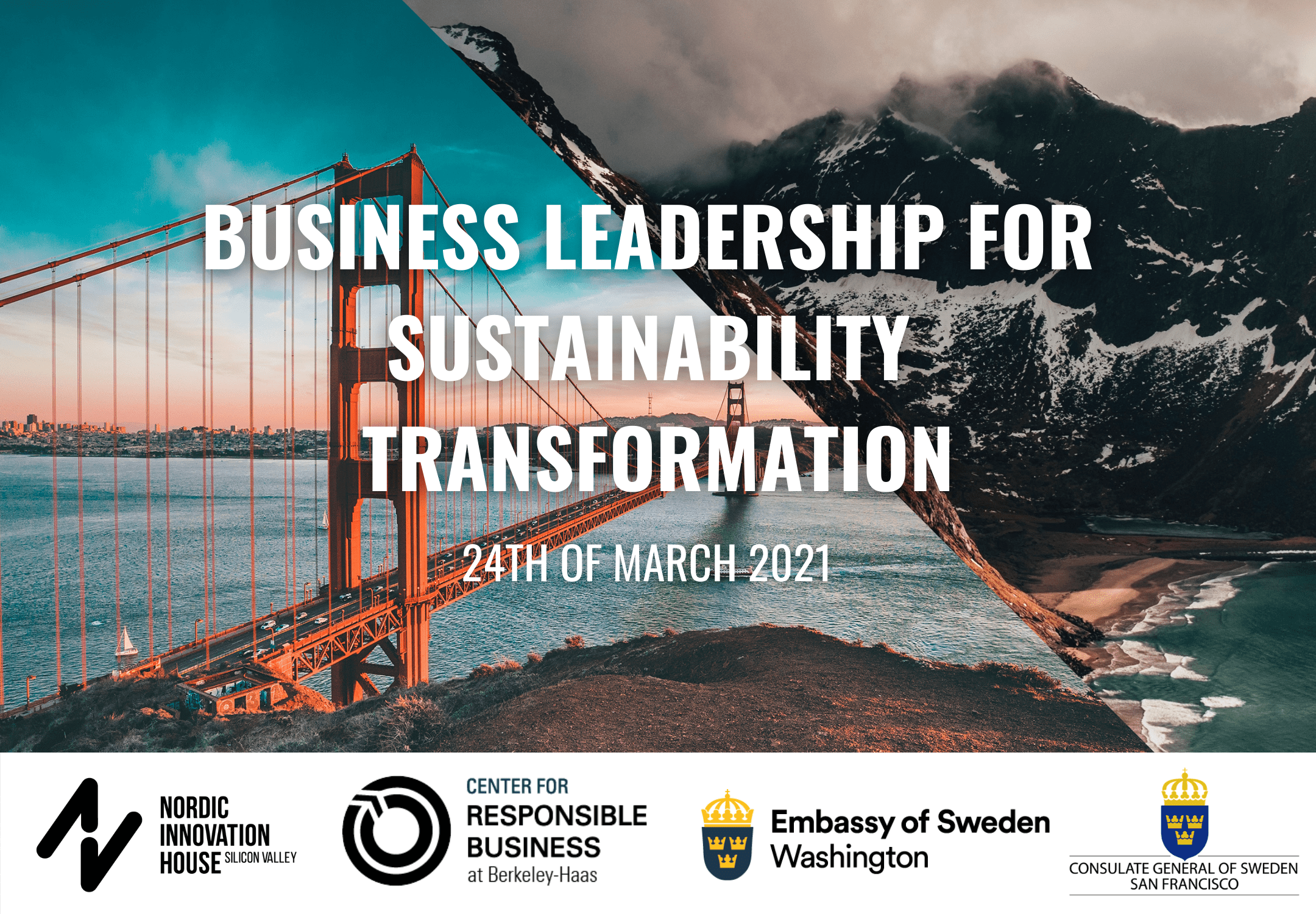Can Companies Lead the Climate Charge?

By Maxwell Kushner-Lenhoff, CRB Student Advisory Board, CRB Fellow & MBA ’18 Candidate
Thomas Jefferson once said, “In matters of style, swim with the current; in matters of principle, stand like a rock.” Three months after President Trump announced the U.S. plan to renegotiate the Paris Climate Accord, that is exactly what the panelists on the Center for Responsible Business’ Climate Action Panel demonstrated they are doing.
Chris Benjamin, Director of Corporate Sustainability at Pacific Gas and Electric (PG&E), Katie DeWitt, Director of Energy Digital Projects at Tesla, Elysa Hammond, Director of Environmental Stewardship at Clif Bar and Company, and Mark Lee, Executive Director of SustainAbility and Center for Responsible Business Senior Advisory Board Member, came together from diverse industries and backgrounds to address how their companies are leading the climate charge on a panel co-hosted by the CRB and the Berkeley Energy and Resources Collaborative (BERC).
Together, these panelists represented electricity, transportation and food – sectors that account for more than two-thirds of U.S. greenhouse gas emissions. Each panelists’ company is taking action to address that impact: At PG&E, 70% of electricity was carbon free last year (including big hydro and nuclear), Clif Bar has set the goal of having 80% organic ingredients by 2020, and Tesla is 100% focused – as its mission – on achieving a sustainable future.
Getting to this goal will require, as DeWitt said, “Making it as easy as possible for people to do the right thing.” For Benjamin of PG&E, that will mean making renewable energy solutions “safe, reliable and affordable,” which PG&E is working to facilitate.
In the energy and sustainability space, though, product innovations are not enough. Policy and governance always plays a crucial role. As Hammond mentioned, “Governance influences everything you do,” referring to Clif Bar’s commitment to stay private.

DeWitt called attention to the fact that Tesla is only in states where policy is favorable, regardless of solar potential. She cited the example of Nevada, where a change in policy caused the residential solar industry to leave the state overnight (Another reversal now has companies coming back). As Lee said, sometimes “Policy is even more influential than nature.”
Luckily, CA is leading the way with a number of mandates that PG&E is leading in executing against. As Benjamin mentioned, “We are demonstrating how it works and providing a model for others to follow.” Chris also cited the “We are still in” campaign, through which corporate, state, and local leaders have demonstrated their continued commitment to the Paris Climate Accord.
The panel ended on an aspirational note, with DeWitt and Benjamin noting how net metering had previously pitted solar companies against utilities but how batteries are now encouraging them to work together.
Companies don’t have all of the answers, but they can certainly help solve the challenge. Both BERC and the CRB are committed to providing the platform to help them rise to the occasion.
 Maxwell Kushner-Lenhoff is a Fellow at the Center for Responsible Business, VP of the Berkeley Energy and Resources Collaborative (BERC) and a full-time MBA student at Berkeley Haas. Prior to business school, he earned his BS/MS in inorganic chemistry at Yale focused on renewable fuels production. He then spent four years in the Office of the CEO at The Dow Chemical Company, where he worked on the company’s 2025 Sustainability Goals, among other projects. Max spent the summer as an R&D Finance Associate at Genentech.
Maxwell Kushner-Lenhoff is a Fellow at the Center for Responsible Business, VP of the Berkeley Energy and Resources Collaborative (BERC) and a full-time MBA student at Berkeley Haas. Prior to business school, he earned his BS/MS in inorganic chemistry at Yale focused on renewable fuels production. He then spent four years in the Office of the CEO at The Dow Chemical Company, where he worked on the company’s 2025 Sustainability Goals, among other projects. Max spent the summer as an R&D Finance Associate at Genentech.


